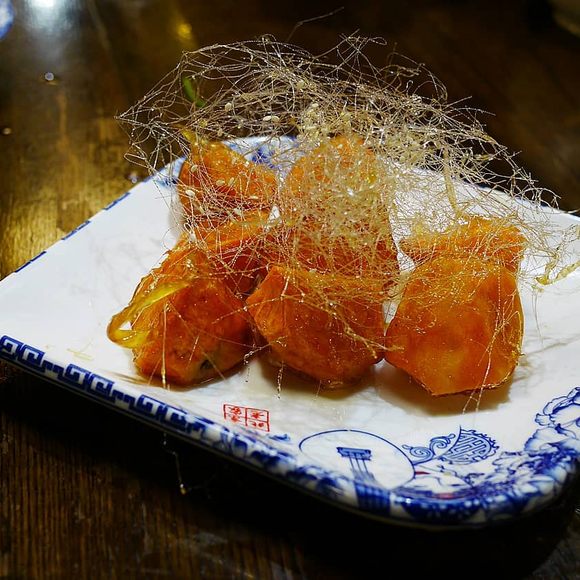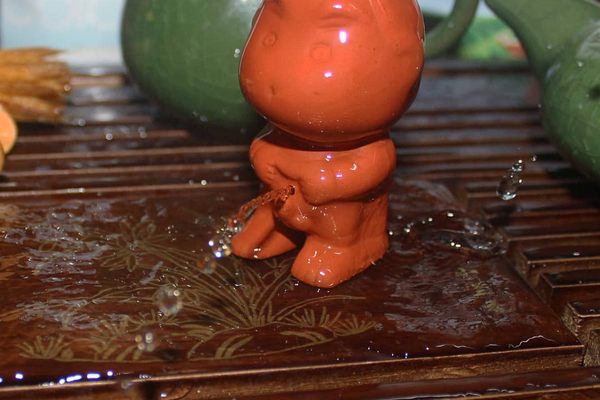At the end of a meal in Northeastern China, you might have the opportunity to order basi digua, or “pull-silk” sweet potatoes. The dish’s name may not be immediately apparent when it arrives: At first glance, it’s a plate of gleaming, sliced sweet potatoes, served alongside a bowl of ice water.
But when you reach to take a slice of sweet potato, you’ll realize the meaning behind the name. The potatoes have been lightly fried, then covered in a thick layer of molten sugar. Pulling each piece of potato away from the rest will result in long, silk-like strings of sugar, that will immediately solidify. Soon, the dish will look like a spiky crystal, with shards of caramelized sugar going every which way. The bowl of ice water, as it happens, is very necessary: The potatoes are blisteringly hot, as is the sugar. Giving them a quick dip into ice water hardens their caramel coating, and cools the sweet potato enough to eat. Waiting too long, though, can solidify your basi sweet potato into a rock-solid mass. Sometimes, chunks of apple, strawberries, or taro get the basi treatment too.
Where to Try It
-
Fu Ru Dong Bei
40-09 Prince St, Queens, New York, 11354, United StatesThis Flushing restaurant offers dishes from the Dongbei region, including basi sweet potatoes.
-
东北人 (Dong Bei Ren)
1A Xinzhong Jie, Dongzhimenwai, Beijing, ChinaThis Beijing restaurant also offers basi sweet potatoes.
Written By
 Anne Ewbank
Anne Ewbank















